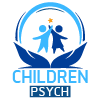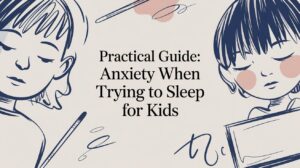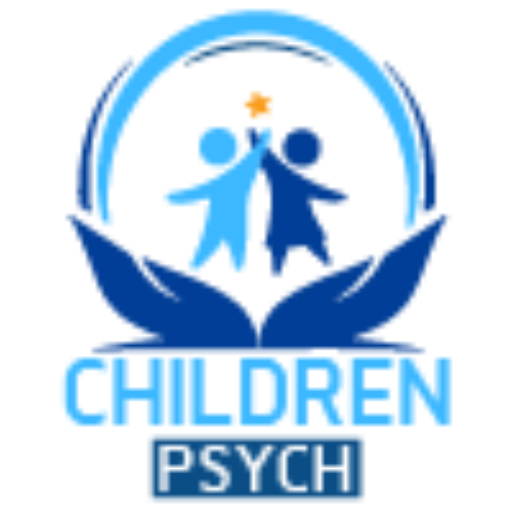Do you have a problem with doubt and uncertainty? Do you spend hours washing your hands or checking to make sure the door is locked? If so, you may be suffering from OCD or obsessive-compulsive disorder.
Obsessive-Compulsive Disorder (OCD) is a mental disorder that is characterized by repetitive, intrusive thoughts (obsessions) and/or unreasonable fears (compulsions) that lead to distress and/or impairment in functioning.
While OCD can occur at any age, it is most commonly diagnosed in childhood or adolescence. Approximately 1 in 200 children and adolescents suffer from OCD, making it one of the most common mental disorders in this age group.
OCD can be a debilitating condition that interferes with school, work, and/or social functioning. The good news is that OCD is treatable. With proper diagnosis and treatment, most people with OCD can experience significant improvement in their symptoms.
If you think your child may be suffering from OCD, it is important to seek professional help. A trained mental health professional can perform a comprehensive evaluation to determine if OCD is present and, if so, develop a treatment plan.
What are the symptoms of OCD?
There are a variety of symptoms that can be associated with OCD, but they generally fall into one of four categories: obsessions, compulsions, avoidance, and rituals.
Obsessions are unwanted, intrusive thoughts, images, or urges that cause distress or anxiety. Common obsessions include fear of contamination, need for symmetry or exactness, and intrusive thoughts about harm or violence.
Compulsions are repetitive behaviors or mental acts that a person feels compelled to do in order to relieve the anxiety caused by their obsessions. Common compulsions include excessive hand-washing, counting, checking, and cleaning.
Avoidance refers to the behaviors and rituals that a person uses to try to avoid their obsessions. Common avoidance behaviors include avoiding places or situations that trigger anxiety, such as public restrooms or places where there might be germs.
Rituals are the repetitive behaviors or mental acts that a person uses to try to relieve the anxiety caused by their obsessions. Common rituals include excessive hand-washing, counting, checking, and cleaning.
Can OCD Affect Children?
Yes, OCD can affect children. Symptoms usually start around age 10, but can begin as early as age 5 or 6. Children with OCD often have very intense fears and worries that they can’t seem to shake. They may worry about getting sick, being injured, or harming others. These fears can lead to compulsions, which are repetitive behaviors or mental rituals that the child feels compelled to do in order to ease their anxiety. Children with OCD may wash their hands excessively, check things repeatedly, or hoard objects for fear of losing them. OCD can have a profound effect on a child’s life. It can interfere with school, friendships, and family relationships. If left untreated, it can lead to depression, anxiety, and other problems. But with treatment, most children with OCD can learn to control their symptoms and live normal, productive lives.
How does OCD affect Children?
Obsessive-compulsive disorder (OCD) can be extremely debilitating, causing significant distress and disruption to a child’s life. OCD can cause children to perform repetitive behaviors, such as washing their hands or counting, in an attempt to relieve their anxiety. Children with OCD may also have intrusive thoughts that are disturbing and distressing.
left untreated, OCD can severely interfere with a child’s ability to function at home, school, and in social situations. With proper treatment, however, most children with OCD can significantly reduce their symptoms and live productive lives.
Symptoms of OCD in children may include:
- Obsessions with dirt, germs, or contamination
- Fear of getting sick or harming oneself
- Excessive hand-washing or showering
- Avoidance of contact with others
- Compulsive ordering or arranging
- Intrusive and unwanted thoughts, images, or urges
- Obsessions with symmetry or exactness
- Excessive counting or ordering
- Compulsive checking of locks, appliances, or lights
- Intrusive and unwanted sexual thoughts or images
What causes OCD?
Obsessive-compulsive disorder (OCD) is an anxiety disorder in which people have unwanted and repeated thoughts, feelings, images, and sensations (obsessions) and engage in behaviors or mental acts in response to these obsessions. Common compulsions include handwashing, counting, checking, hoarding, and repeating words or phrases. People with OCD may be unable to control their obsessions and compulsions.
OCD can cause significant anxiety and interfere with a person’s ability to function at work, school, or home. People with OCD may avoid situations that trigger their obsessions or may engage in compulsive behaviors to try to relieve their anxiety. These avoidance and compulsions can significantly interfere with a person’s quality of life.
OCD is a chronic and long-lasting disorder that can be debilitating for those who suffer from it. However, OCD is treatable with medication and/or therapy. With treatment, most people with OCD can learn to control their obsessions and compulsions.
How is OCD treated?
Treatment for OCD typically involves a combination of medication (e.g., antidepressants) and cognitive-behavioral therapy (CBT). OCD focuses on helping people to identify and challenge their obsessive thoughts and to learn and practice healthy coping strategies. If you or someone you know is struggling with OCD, please seek professional help.
OCD can be a debilitating mental illness, but there is hope! With proper treatment, many people with OCD are able to live happy and fulfilling lives.
There is no one-size-fits-all answer to this question, as the cause of OCD likely varies from person to person. However, some possible causes of OCD include a combination of genetic and environmental factors, a family history of OCD, or traumatic experiences. Obsessive-compulsive disorder may also be triggered by stressful life events, such as the death of a loved one, a divorce, or a job loss. If you or someone you know is struggling with OCD, please seek professional help.
While there is no known cure for OCD, there are effective treatments available that can help people manage their symptoms and live happy and fulfilling lives. Treatment for OCD typically involves a combination of medication (e.g., antidepressants) and cognitive-behavioral therapy (CBT). OCD focuses on helping people to identify and challenge their obsessive thoughts and to learn and practice healthy coping strategies.
If you or someone you know is struggling with OCD, there is help available. Treatment for OCD typically involves a combination of medication and cognitive-behavioral therapy, which focuses on helping people to identify and challenge their obsessive thoughts and learn healthy coping strategies. With proper treatment, many people with OCD are able to live happy and fulfilling lives.




